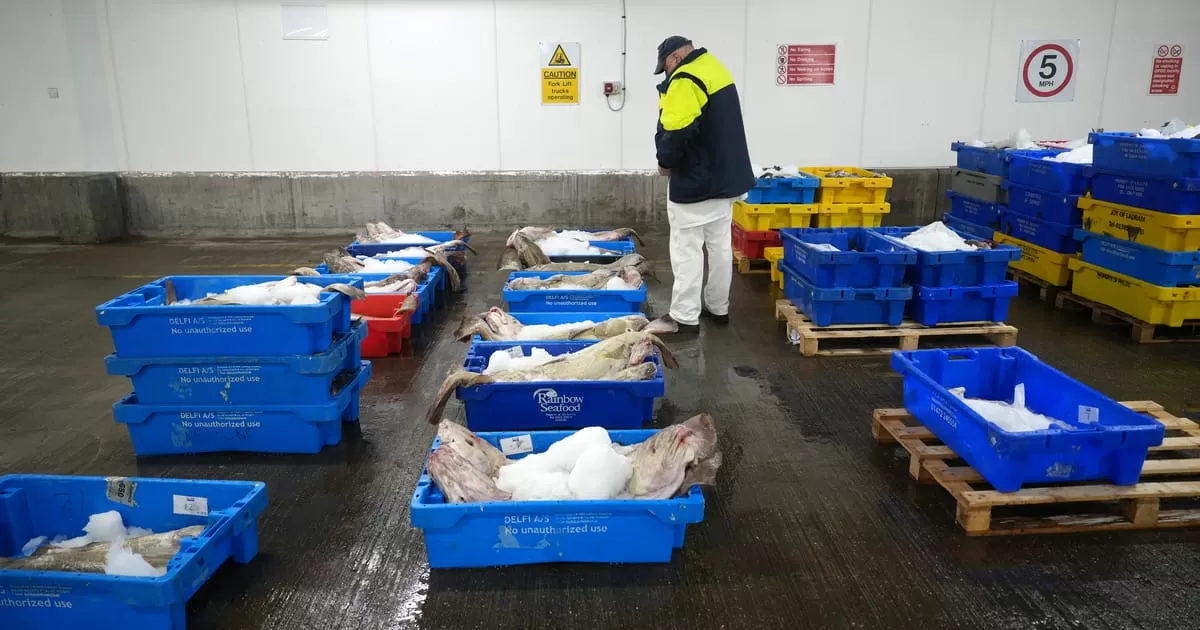In recent weeks, the European Union (EU) and the United Kingdom (UK) have been engaged in intense negotiations over their post-Brexit relationship. And while key issues such as trade and the Irish border have dominated the headlines, there is one topic that has been quietly gaining attention: fishing.
For the EU, fishing has been a top priority in these negotiations. And now, EU governments have hinted that agreement on fishing is their price to give ground on Keir Starmer’s own priorities.
But why exactly is fishing such a crucial issue for the EU? And what does this mean for the UK and its priorities in the negotiations?
Firstly, it’s important to understand the significance of fishing for the EU. The fishing industry is a vital part of the economies of many EU member states, particularly those with coastal regions. It provides employment for thousands of people and contributes significantly to their GDP. Therefore, any changes to the access and quota rights in UK waters would have a major impact on these countries.
Furthermore, the EU sees fishing as a matter of fairness and reciprocity. Under the Common Fisheries Policy, EU member states have shared access to each other’s waters and a quota system that is based on historical fishing patterns. This means that EU fishermen have been able to fish in UK waters for decades, and any changes to this arrangement would be seen as a loss of rights and opportunities.
On the other hand, the UK has long been dissatisfied with the EU’s fisheries policy. The UK fishing industry has felt that it has been disadvantaged by the EU’s quota system, with a large portion of the UK’s fishing rights being allocated to other member states. Therefore, Brexit has been seen as an opportunity to regain control of UK waters and restructure the fishing industry in a way that benefits the UK.
Now, with the negotiations at a crucial stage, EU governments have hinted that they are willing to compromise on fishing in order to secure an agreement on other key issues, such as trade. This is a significant development, as it shows that the EU is willing to make concessions in order to reach a mutually beneficial deal with the UK.
This is good news for Keir Starmer, the leader of the UK’s main opposition party, the Labour Party. Starmer has been a vocal critic of the government’s handling of the negotiations and has called for a closer relationship with the EU. He has also been pushing for a strong deal that protects jobs and the economy, which are his own priorities.
And with the EU now signaling that fishing is not a red line issue, this gives Starmer and Labour the opportunity to focus on other important matters in the negotiations. This could include issues such as workers’ rights, environmental protections, and access to the EU’s single market.
But it’s not just Starmer who stands to benefit from this development. A compromise on fishing would also be beneficial for the UK as a whole. It would allow the UK to secure a deal with the EU, which is crucial for its economy and the livelihoods of its citizens. It would also show that the UK is willing to negotiate and find common ground with the EU, which could pave the way for a positive relationship in the future.
In conclusion, the EU’s willingness to compromise on fishing is a positive sign for the ongoing negotiations. It shows that the EU is open to finding a solution that works for both sides, and that they are willing to prioritize other important issues in order to reach a deal. For Keir Starmer and his priorities, this is a significant development that could lead to a stronger and more beneficial outcome for the UK. Let’s hope that both sides can continue to make progress and reach an agreement that benefits everyone involved.

